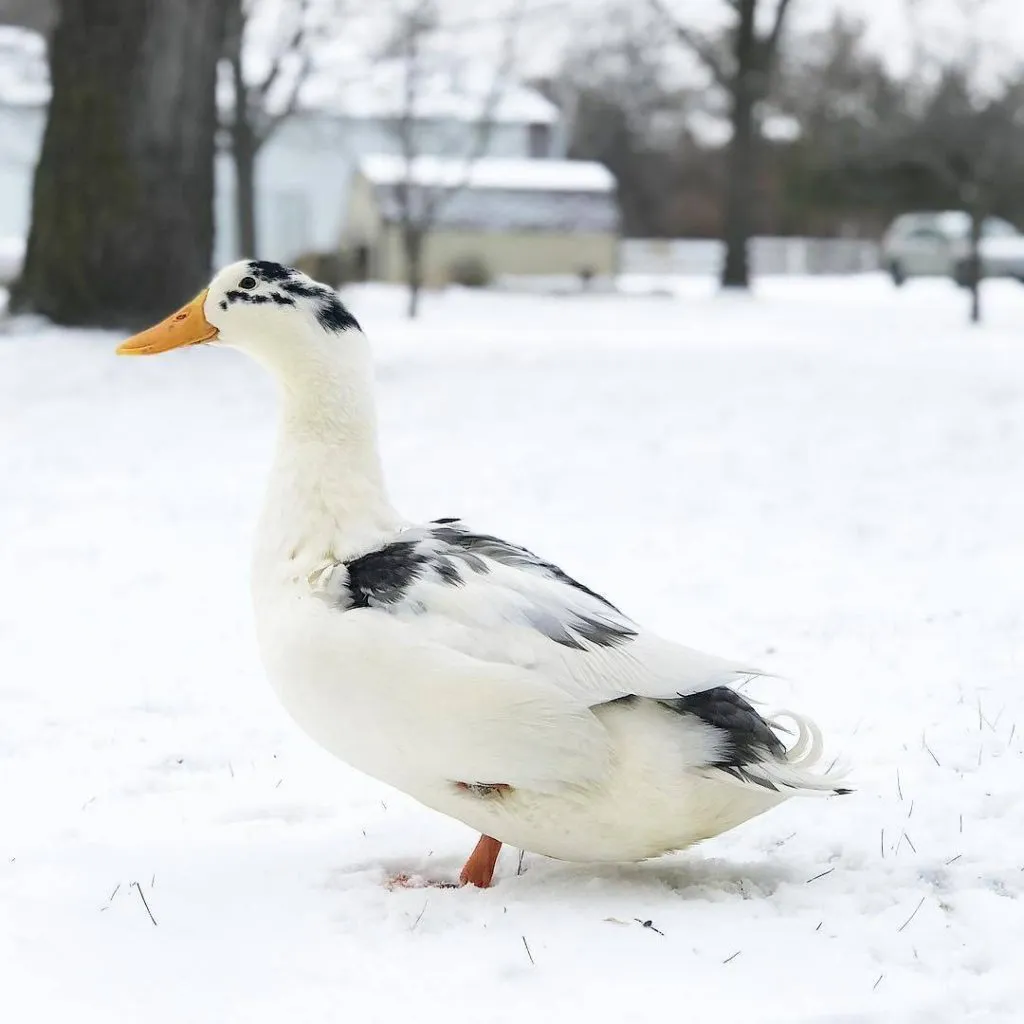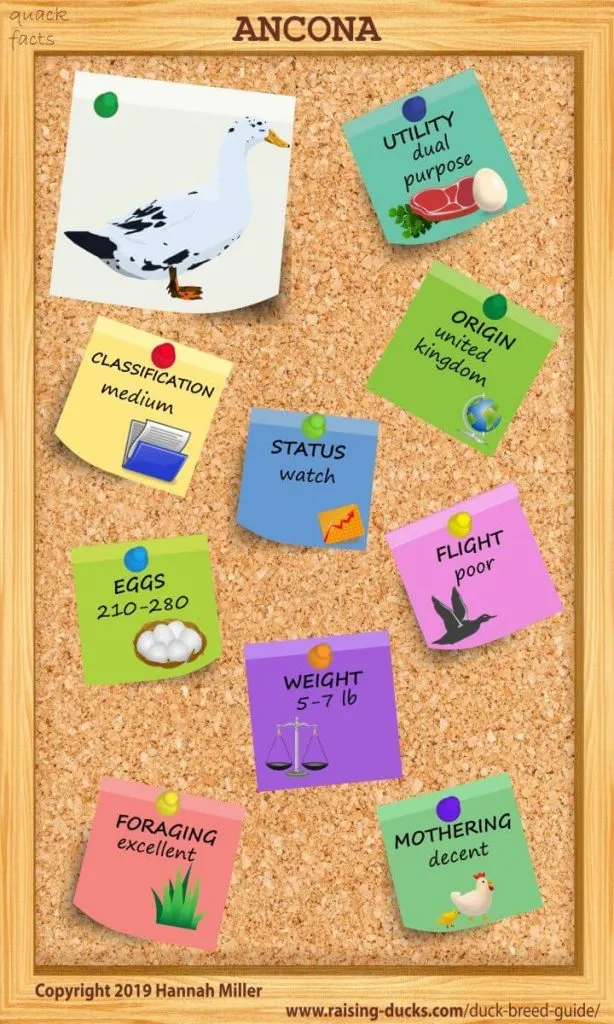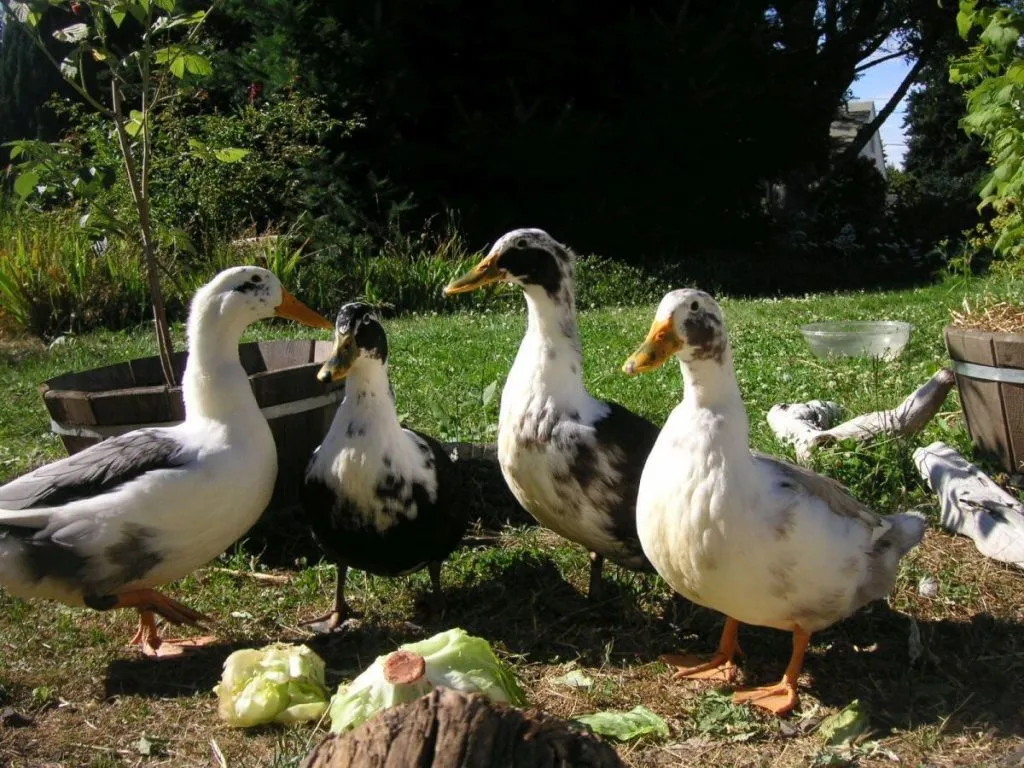The Ancona duck is a large dual-purpose duck breed that’s beautiful, friendly, excellent at foraging, and has recently been experiencing a surge of popularity. For a long time, they were listed by the American Livestock Breed Conservancy (ALBC) as “critically endangered.” However, a census taken by the ALBC in 2015 has found between 1000 and 1500 breeding birds (compared to only 125 in 2000), bumping their status up to “watch.” They are a wonderful breed and their popularity will likely continue rising.
Anconas originated in England in the 20th century. They were bred for the express purpose of being a homesteading duck for people who wanted a few family ducks for eggs and meat.
They’re always pied, like pinto horses and Holstein cattle, with random color patches that are usually either black, buff blue, chocolate, lilac, silver, or lavender, with black-and-white being the most common. You can see a variety of Ancona colors here.

Their feet are orange and bills are yellow, and often covered in spots and dark patches.
They’re similar to the Magpie duck, although stockier.
They are excellent layers, producing 210-280 large blue, green, gray, cream, or white eggs a year.
They’re not the best broody ducks, but they do sometimes go broody, and when they do, they’re usually decent mothers.
Anconas make good meat birds, as they grow fast and have meat that isn’t as fatty as Pekin meat.
Ancona ducks weigh approximately 5 (2.3 kg) to 7 (3.2 kg) pounds, with drakes generally weighing slightly more.
View this post on Instagram
They are considered to be one of the friendliest breeds of ducks, and they’re also usually quite calm, don’t wander far from home, and are very hardy and disease-resistant. Moreover, they’re excellent foragers.
Their flying ability is poor and their normal lifespan is approximately ten years.
They are one of the best possible choices for any duck raiser.

Photo and Video Gallery

Photo credit: “DucksGrownUp” (CC BY-SA 2.0) by Miles Away Farm

Leave a comment
Your email address will not be published.